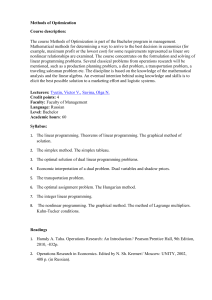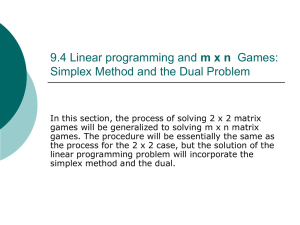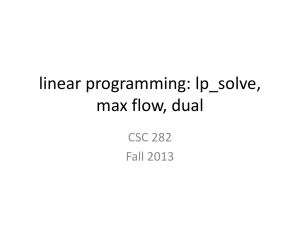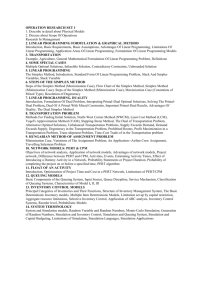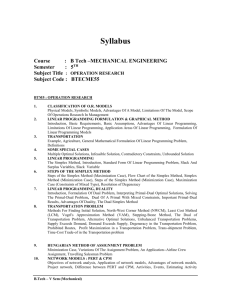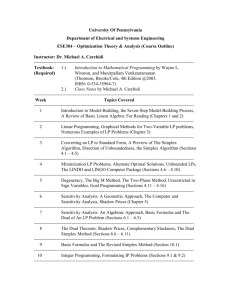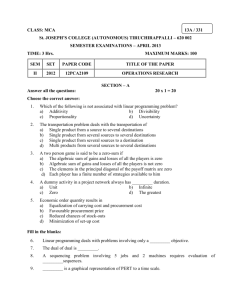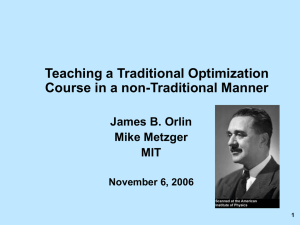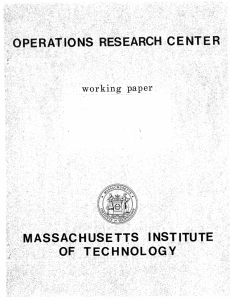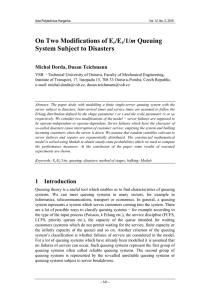File
advertisement
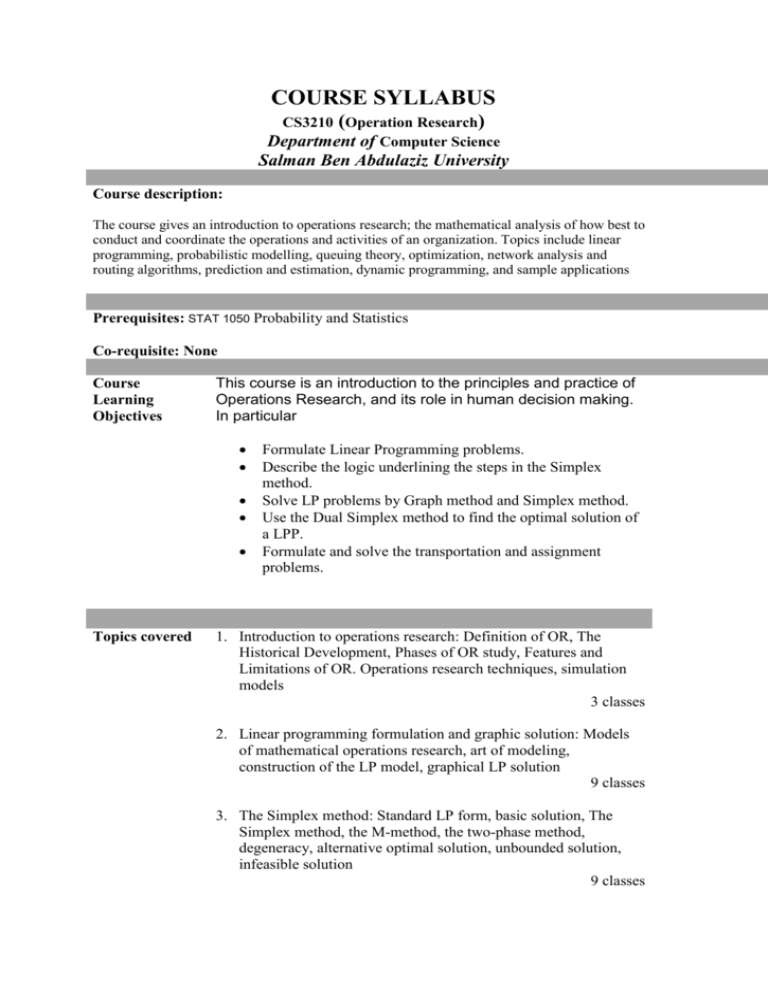
COURSE SYLLABUS CS3210 (Operation Research) Department of Computer Science Salman Ben Abdulaziz University Course description: The course gives an introduction to operations research; the mathematical analysis of how best to conduct and coordinate the operations and activities of an organization. Topics include linear programming, probabilistic modelling, queuing theory, optimization, network analysis and routing algorithms, prediction and estimation, dynamic programming, and sample applications Prerequisites: STAT 1050 Probability and Statistics Co-requisite: None Course Learning Objectives This course is an introduction to the principles and practice of Operations Research, and its role in human decision making. In particular Topics covered Formulate Linear Programming problems. Describe the logic underlining the steps in the Simplex method. Solve LP problems by Graph method and Simplex method. Use the Dual Simplex method to find the optimal solution of a LPP. Formulate and solve the transportation and assignment problems. 1. Introduction to operations research: Definition of OR, The Historical Development, Phases of OR study, Features and Limitations of OR. Operations research techniques, simulation models 3 classes 2. Linear programming formulation and graphic solution: Models of mathematical operations research, art of modeling, construction of the LP model, graphical LP solution 9 classes 3. The Simplex method: Standard LP form, basic solution, The Simplex method, the M-method, the two-phase method, degeneracy, alternative optimal solution, unbounded solution, infeasible solution 9 classes 4. Dual problem: Definition of the dual problem, the relationship between the optimal primal and dual solution, the dual Simplex method 3 classes 5. Transportation, assignment, and transshipment models: Definition of the transportation model, determination of a starting solution, the transportation algorithm, definition of the assignment problem, the Hungarian method, the transshipment model 12 classes 6. Queuing models: Structure and components of a queuing process, Examples of real queuing systems, Queuing theory assumptions, disciplines and notations, Single and Multi Channel queuing models, Derivation of Necessary Formulae. 6 classes Class Schedule : The class is held three times per week in 50-minute lecture sessions. In addition, there is a 50-minute tutorial section each week (Lectures : Saturday 10:00 to 10:50 am , and Tuesday 8:00 to 9:40 am). Textbook : “Introduction to Operations Research” by F.S.Hillier and G.J.Lieberman, 7th Edition, McGraw-Hill, 2001 ISBN # 0072321695 "Operations Research: An Introduction" by ,Hamdy A. Taha Prentice Hall Latest Edition Relationship of Course to Computer Science Program Outcomes: Program Outcomes Course Learning Objectives a b √ c √ d e f g h i j √ k √ Course evaluation : There are two in-class exams during the term, a final exam and graded homework: Week due Proportion First exam 6 th weak 20% Second exam Homework +Quizzes 12 th weak During the term 20% 20% Final exam This will be a two-hour examination and the date and time will be announced by the College. 40% Office hours: location 2nd floor – Room BS7 Time Sunday 3:00pm to 4:00 pm, Tuesday 3:00 pm to 5:00 pm, Outside office hours, please contact for an appointment Prepared by : Reviewed by: Dr. Jamal Akhtar Khan ………………….. August31, 2014
